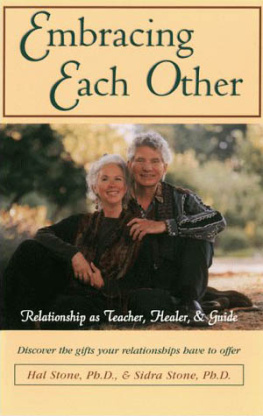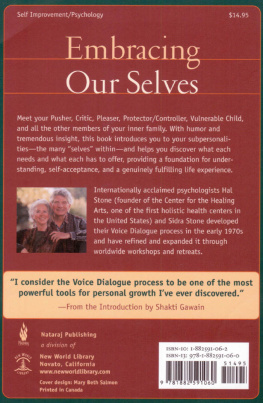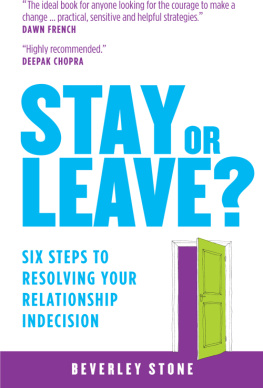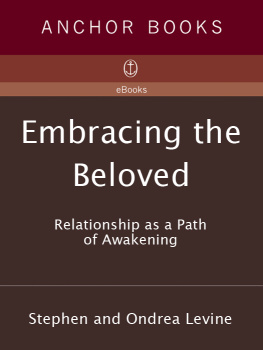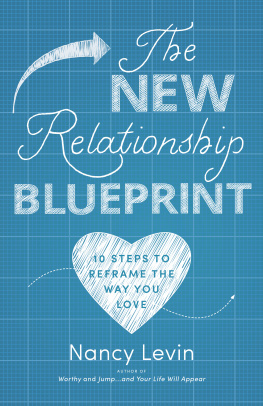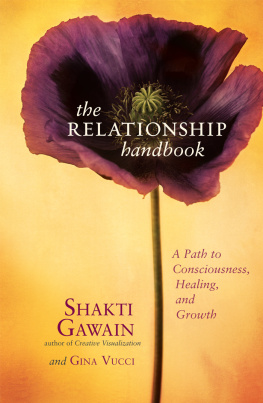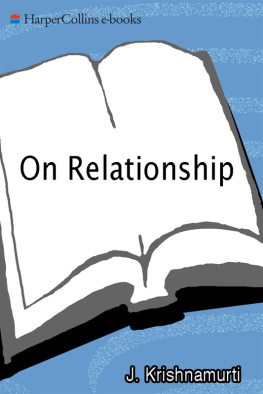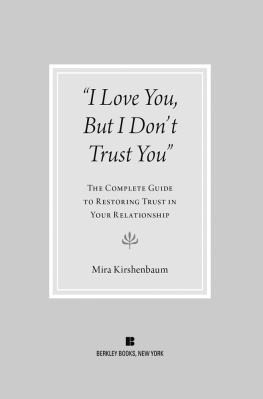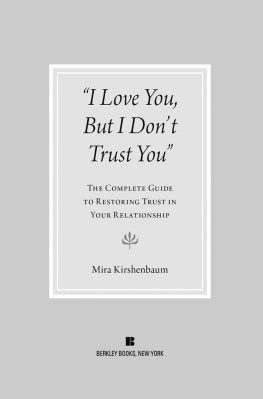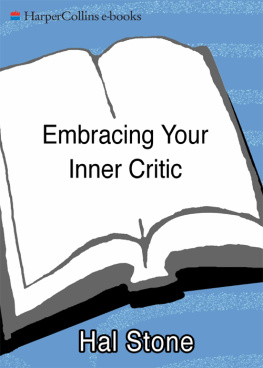
The Voice Dialogue Method described in Embracing Our Selves is the most extraordinary psychotherapy process I have ever experienced. Now, in their new book, Embracing Each Other, Drs. Winkelman and Stone bring to us their no-fault, no-nonsense insights into the grand dance of human relationship. Both of these books are essential reading for professionals and lay people alike.
Stephanie Simonton
Pioneer in cancer research
Author
As a Catholic priest, I have been excited and appreciative of the Voice Dialogue method described in Embracing Our Selves. Now Drs. Winkelman and Stone have extended their ideas and brought to us this remarkable companion volume, Embracing Each Other. As in the first book, they continue to honor and facilitate the process of becoming holy, which has always been the call of our religious tradition and other traditions as well.
Fr. Bill Whittier
Catholic Priest
Teacher and Counselor
Hal Stone and Sidra Winkelman have utilized careful, perceptive clinical observation to develop a clean theoretical construct which is then presented in an elegant, understandable writing style. I strongly recommend this book to professionals and non-professionals alike.
G. Rick Smith, M.D.
Associate Professor of Psychiatry
and Vice Chairman of Research for Medical Science
University of Arkansas
In Embracing Our Selves, Drs. Winkelman and Stone described the psychology of selves and the Voice Dialogue process which is the single best tool Ive found in 23 years of psychiatric practice. In Embracing Each Other, they extended their non-judgmental, non-pathologizing approach to the sphere of personal relationships. I cannot recommend this book strongly enough to the reading public.
Phil Bohnert, M.D.
Assistant Professor of Psychiatry and Family Medicine
Baylor College of Medicine
Embracing
Each Other

Relationship as Teacher,
Healer & Guide
Embracing
Each Other

Relationship as Teacher,
Healer & Guide
Hal Stone, Ph.D.
Sidra Winkelman, Ph.D.

New World Library
San Rafael, California
Copyright 1989 Delos, Inc., Sherman Oaks, California
Published by New World Library
58 Paul Drive, San Rafael, California 94903
Cover design: Kathleen Vande Kieft
Back cover photo: Hella Hammid
Typography: Harrington-Young, Albany, California
All rights reserved. This book may not be reproduced in whole or in part, without written permission from the publisher, except by a reviewer who may quote brief passages in a review; nor may any part of this book be reproduced, stored in a retrieval system, or transmitted in any form or by any means electronic, mechanical, photocopying, recording, or other, without written permission from the publisher.
First New World Library printing September, 1989
ISBN 0-931432-60-X
Printed in the United States of America
10 9 8 7 6 5 4 3 2 1
To
Elizabeth, Claudia, and Recha Winkelman
and
Joshua and Judith Stone
Contents
Acknowledgments
To all the loved ones, the teachers, the colleagues, and the clients who have shared their depths with us and to everyone who has supported us on our journey, we would like to express our deepest gratitude and love for the gifts you have given us along our way. And to all the adversaries who challenged us and pushed us further than we might have gone, we would like to express our thanks for teaching us the things we did not want to learn. Without all of you, this book would never have been written.
This is a book about relationship, relationship as an adventure, a never-ending journey into the unknown. It is about relationship as a teacher who will lead us in an exploration of both the world outside and the world within, guiding us in our own inexorable evolution of consciousness. We have based this book upon our own personal experience in relationships and upon the experiences of the many people who have shared their relationships with us.
This is not a book with easy answers for solving problems and making relationships work because we have noticed over the years that there are no easy answers. It is, instead, a book that will initiate the reader into the amazing complexities of relating to another and show the unbelievably rich gifts that relationships can bring.
Relationship, in this way of thinking, is a journey of the soul. Although this may sound a bit formidable, the journey is exciting, full of unexpected twists and turns and, surprisingly enough, a very natural one. It is all a question of trust.
Unfortunately, few of us have been raised to trust relationships and to learn from them. We have been raised, instead, to conduct relationships appropriately, to figure out how to handle and generally to control our relationships so that neither we, nor others, will be uncomfortable at any time. Most of our concern in relationship, whether it be with a lover, a family member, a fellow worker, or a teacher, centers upon doing away with discomforts, solving problems, and avoiding conflict.
Our culture is primarily rational and result-oriented in its outlook, and this is reflected in our relationships. We want them to work flawlessly and efficiently. We read books on how to improve them, learn techniques of analysis and communication and conflict resolution. Still, our relationships are never as smooth and well-functioning as we imagine they should be. Whether we are trying to discipline a child, speak with our parents, relate to a co-worker, or reconnect with a lover, matters can become inexplicably complicated.
Somehow, in this mechanistic way of looking at things, most of us feel that if we just figure out the way a relationship works, we should never again be unhappy, misunderstood, or in any way uncomfortable. We (or our Inner Perfectionists) carry a picture in our heads of a mature, loving, well-adjusted pair of individuals who are able to connect deeply, be mutually supporting, and relate with great common sense. This ideal couple can solve problems by sitting down and sensibly talking them over, listening, respecting, and effectively communicating with one another, but never hurting one anothers feelings, never being totally confused, and never questioning basic assumptions. There is always a clear understanding of what form the relationship will assume and how it will evolve.
These fantasies are supported by many of the television sitcoms that portray idealized family constellations. Over the years, however, we have noticed that life rarely works that way; at least it has not seemed to work that way for the people we have met. Things are a bit more complex, and people, bless them, are the most complicated of all. Each of us is made up of many parts or selves. Therefore, we do not behave in a fully predictable and consistent fashion, and our relationships are inevitably complicated.
Next page
